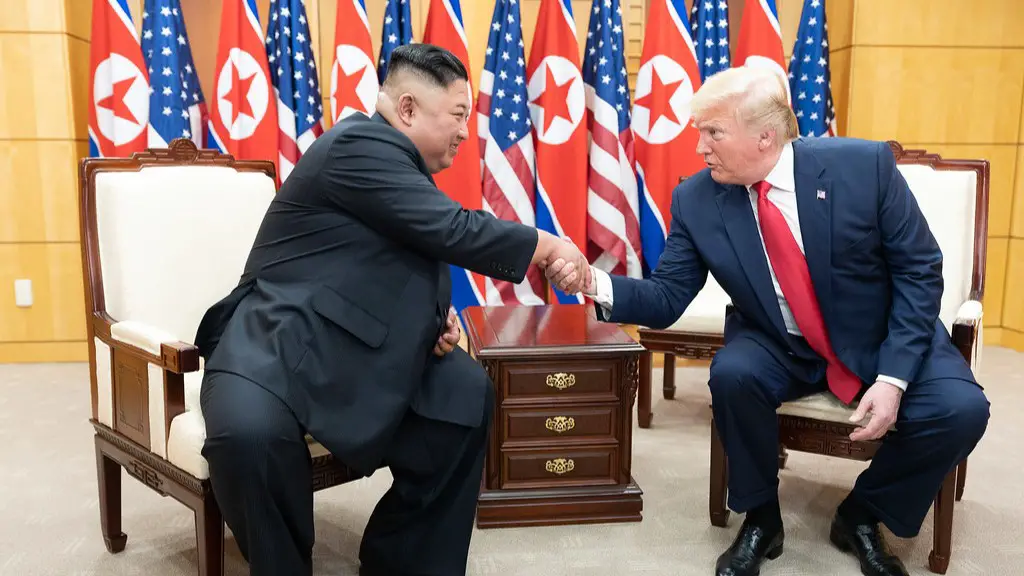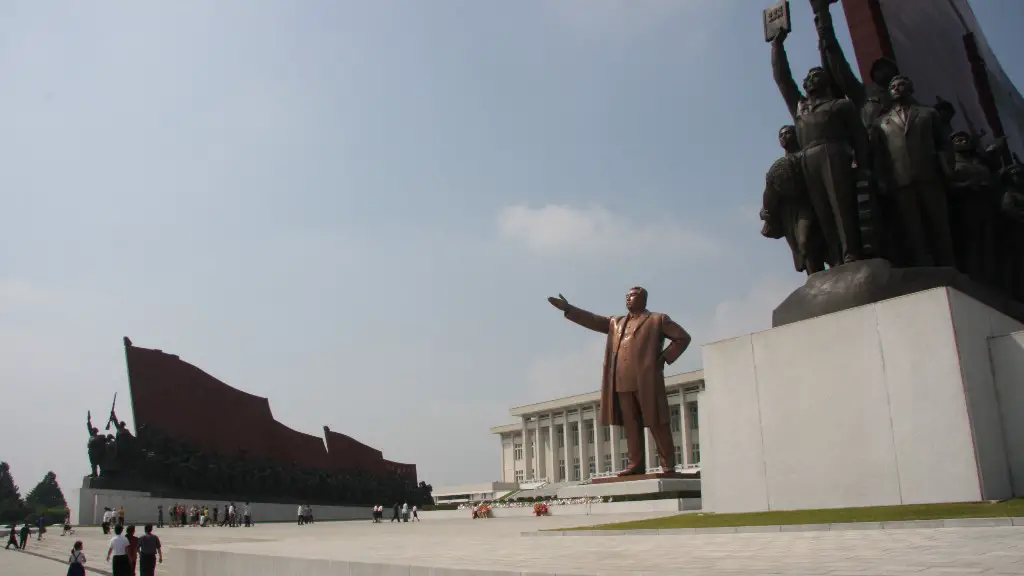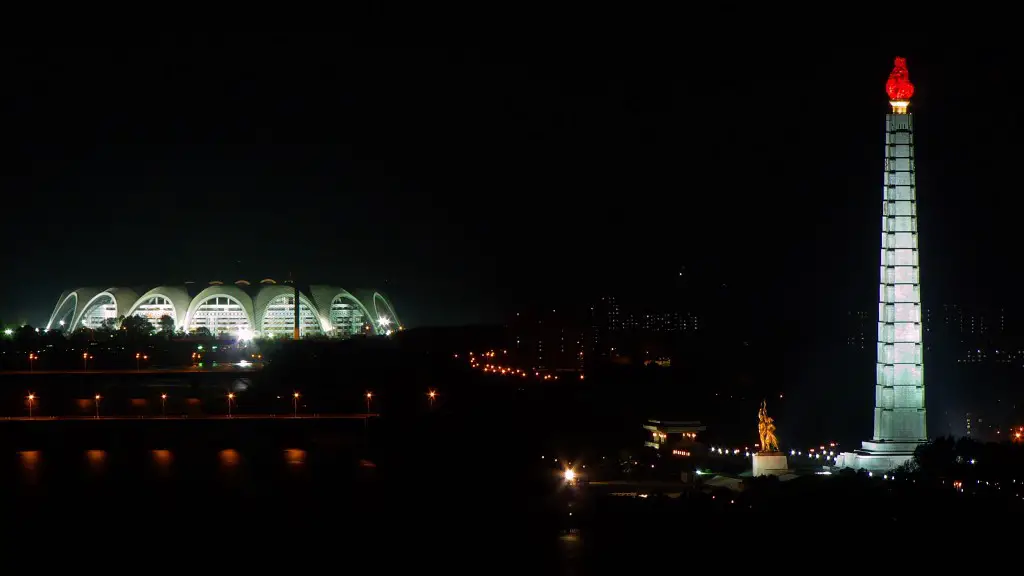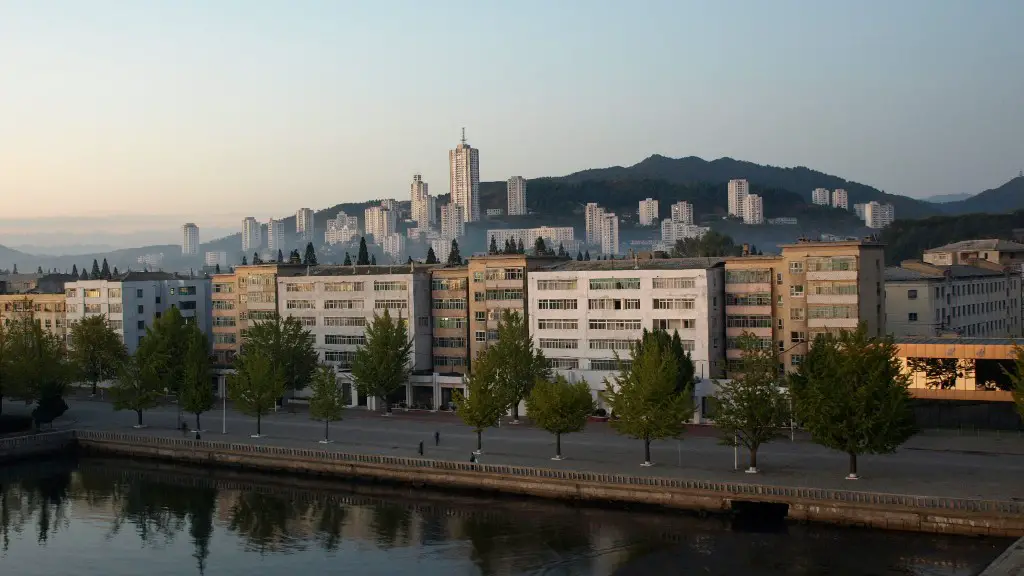North Korean Humanitarian Crisis
Countries around the world have been attempting to come to grips with the humanitarian crisis in North Korea. For many years, North Korea has been susceptible to famine, malnutrition and other forms of human suffering. As a result, the situation has become increasingly dire, with extreme poverty, political repression and isolation from the rest of the world preventing any potential improvement in the lives of those living there.
Although North Korea is one of the least-developed nations in the world, it has also been among the most heavily sanctioned. International pressure on Pyongyang has been mounting for years and has had a negative impact on the nation’s economic situation, making it increasingly difficult for the people to access basic necessities such as food and medical care.
More recently, increasing international pressure has been placed on the North Korean regime, in an effort to encourage denuclearization and improved human rights. However, even with the sanctions, North Korea still has some countries willing to support it.
USA: Diplomacy
Since 2017, the United States of America has adopted a policy of “maximum pressure” in an attempt to force North Korea to comply with international nuclear and disarmament agreements. This has included an extensive economic sanctions regime and diplomatic overtures, although the efficacy of these attempts to persuade Pyongyang has been limited.
The Trump administration has also had an important role in making diplomatic advances towards North Korea. On June 30, 2018, a historic summit between American President Donald Trump and North Korean leader Kim Jong Un took place in Singapore. Although primarily a photo opportunity, the summit was seen by many as a step towards diplomacy and peace between the US and North Korea.
Despite the ongoing tensions between the two countries and the recent failure to re-start stalled talks, the US and North Korean governments have recently embarked on a new round of nuclear talks. North Korean officials have asserted that they are willing to discuss the possibility of denuclearizing the Korean peninsula in exchange for US concessions, such as a lifting of sanctions.
China: Trade Supporter
China is North Korea’s primary trading partner and supplier of vital resources such as food and energy. This not only provides Chinese businesses with lucrative opportunities for commerce, but it also helps to prop up the North Korean economy. In 2018, total trade between the two countries increased by 13.8% from $5.25 billion to $6.1 billion. In 2019, it had further increased by 10%.
Beijing has long been an ally of Pyongyang and has attempted to help the country escape political isolation. China has also called for a “dual-track” approach to resolving the North Korean issue, which involves both pressure and dialogue.China has also worked with North Korea to improve its infrastructure, particularly through the development of large-scale construction projects.
In addition, China continues to provide North Korea with fuel and other resources, which gives Pyongyang more leeway to make its own decisions. Furthermore, Beijing serves as an important buffer between the United States and North Korea and prevents the situation from escalating further.
Russia: Ambiguous Supporter
Russia has a long and complex relationship with North Korea. While traditionally its relations have been characterized by mutual suspicion and antagonism, recent years have seen warmer ties between the two countries.
Moscow has been lukewarm in its support of North Korea, and while they have both called for a “step-by-step” denuclearization process, Russia has hesitated to back UN sanctions against Pyongyang and instead framed North Korea’s nuclear capabilities as a regional security problem. Russia also reportedly supplies North Korea with vital fuel, which some experts have suggested is an indication of its commitment to Pyongyang.
In addition, Russia has offered North Korea support in the form of economic aid and investment, as well as diplomatic backing. In 2019, Russian President Vladimir Putin visited Pyongyang to discuss issues such as nuclear disarmament and regional security.
South Korea: Strategic Foe
South Korea is North Korea’s neighbor and rival in Northeast Asia. Tensions between the two nations have been high for decades, and the two countries are technically still at war. As a matter of policy, Seoul has committed itself to sanctions against the North Korean regime, which has made it difficult for South Korea to provide aid or other forms of assistance.
However, South Korea has also adopted a more nuanced approach to North Korea in recent years, with the South Korean government exploring ways to improve relations with Pyongyang. This has included offering humanitarian aid and engagement in inter-Korean dialogue. In 2018, South Korean President Moon Jae-in even held a summit in Pyongyang, which resulted in a major agreement aimed at establishing peace on the Korean peninsula.
Japan: Cautious Foe
Japan and North Korea have a tense and complicated relationship. In recent years, the two countries have been involved in several high-profile disagreements, and the two countries have long been considered enemies.
Japan has generally adopted a hardline stance on North Korea, and this has been reflected in the nation’s policy towards Pyongyang. Tokyo’s position has been to continue to maintain severe economic sanctions against North Korea, as well as to deny the nation access to the international financial system.
At the same time, however, Japan has also indicated that it is open to diplomatic engagement with North Korea. In 2018, the two countries agreed to hold a summit in Tokyo, and this led to a flurry of diplomatic negotiations that ultimately resulted in no tangible progress.
International Community: Unplugged Relation
Most members of the international community have adopted a cautious approach towards North Korea. While there is a shared understanding that the nation’s nuclear weapons program must be addressed, there are still deep divisions over how best to deal with the situation.
The UN Security Council has imposed several rounds of sanctions on the North Korean regime in an effort to pressure it into ending its nuclear weapons program. However, these attempts have so far proven largely ineffective, as North Korea has remained unwilling to alter its course.
In addition, the European Union and some other Western nations have provided humanitarian aid to North Korea, in an effort to improve living conditions in the country and to address the country’s human rights abuses.
Conclusion
In conclusion, North Korea is heavily reliant on support from a few countries in order to survive. The USA, China, Russia, South Korea and the international community have all been working to bring an end to the North Korean crisis, although the outcomes of these efforts have been mixed. It remains to be seen how the situation will develop in the future.





